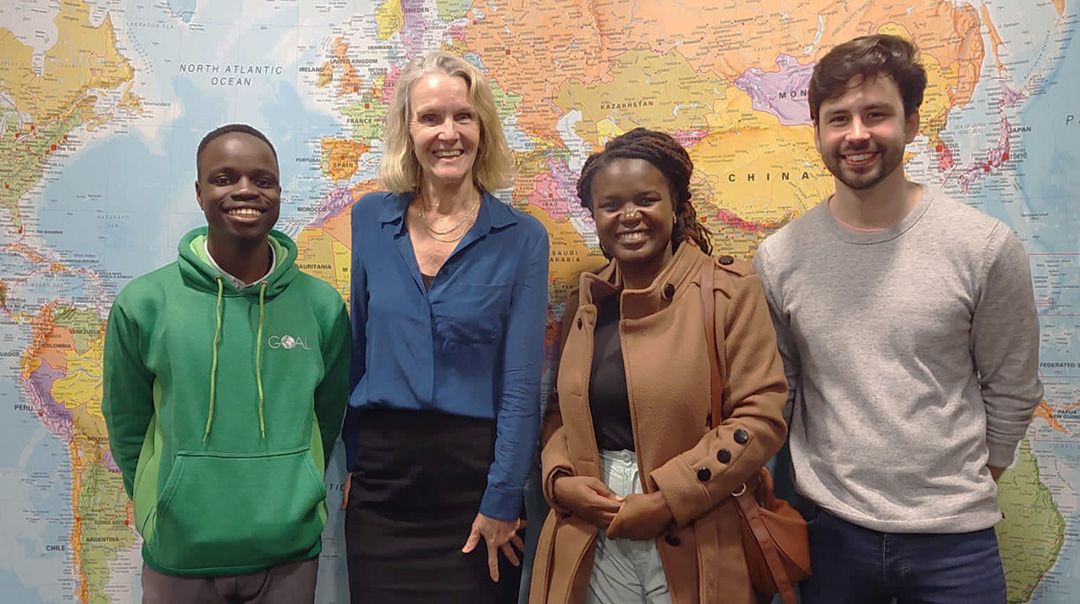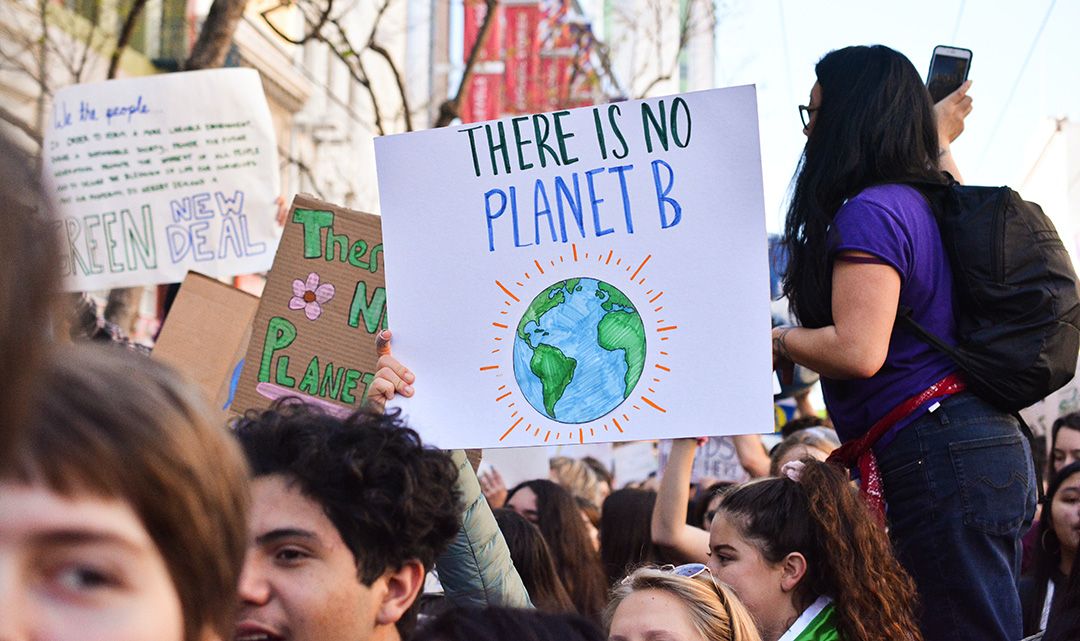 Blogs
Blogs
November 10, 2022 • 4 min read
As world leaders meet at the United Nations Climate Change Conference (COP27) in Egypt, Criomhthann Morrison, Felix Onan Olindi, Nancy Kamwaza and Niamh Flynn from GOAL's NextGen Youth Network look at the potential for change.
Today marks Young and Future Generations Day at COP27, a chance for young voices to be heard on the most important issue of our time, climate change.
We are well aware that our climate is already changing and will continue to transform tomorrow and the next day. The questions are no longer why? What can we do? How can we do it? Or how to do it? Rather, are we willing to make the changes needed to allow existing and future generations to prosper? Can we make individual decisions now, in order to benefit humanity collectively over the next century and beyond?

Felix, Nancy and Criomhthann from GOAL’s NextGen Youth Network with GOAL’s Deputy CEO Mary Van Lieshout
Time is Running Out
We all have a choice, whether you are an average citizen or a world leader – do we want to be the heroes or the villains of the human story. We must choose now, the time to talk is running out. We are beyond 5 out of 9 safety zones of our ‘planetary boundaries’ as of 2022, and we’re on track for +2.4c global average temperatures (admittedly optimistic estimates), far beyond our 1.5c target since pre-industrial levels.
In addition to this, climate change is a ‘crisis multiplier’, meaning it overlaps with other issues like poverty, health, education, equality, justice, jobs and livelihoods, in ways that lead to these problems getting even worse if we don’t fix them. Young people are especially impacted by these issues. Vulnerable communities are already dealing with the impact of our changing climate around the world with cases of land loss, rising sea levels, scarcer food and clean water, and much more.
A Shared Responsibility
Climate action is a collective responsibility. However, the climate emergency has disproportionately impacted countries across the world. While Ireland has seen relatively mild consequences of climate change, the countries that are contributing the least to climate change are some of the most affected: Africa contributes the smallest share of global greenhouse gas emissions, at just 3.8%, in contrast to 23% in China, 19% in the US, and 13% in the European Union.
Africa is home to the world’s youngest population and also grappling with the worst impacts of climate change. This in effect, continues to exacerbate underlying social, economic and development challenges. An example of this is, Malawi, who in 2022, faced its most severe hurricane yet, killing 32 people, displacing 76,000 people and damaging 34,000 hectares of crop land. These represent major disruptions in the everyday life of many people who do not have the financial stability to recover. The devastation caused by climate change is no longer surprising. Unfortunately, the lack of meaningful action by people in positions of power continues to baffle.

Competing Concerns
In the Irish context, 7 in 10 people in Ireland are concerned about climate change when directly asked. However, it ranked third behind housing and healthcare as top concerns for the Irish population in a 2022 report (unfortunately there is no breakdown by age given). We are in a housing crisis where the national average month’s rent (€1,516 per month) costs 93% of the national minimum wage (over 100% if you’re under 20yrs), which itself is €2.40/hr below a living wage. Rising energy costs and inflation are further compounding the problem. Most worryingly, 44% of young people were unemployed by September 2021.
However, there is reason to prioritise climate action. Solutions to combat climate change are also solutions for a sustainable and cheaper source of energy. In addition to this, the difficulties facing the general population now are only going to worsen as the climate crisis continues. In a sense, the climate is the foundation on which our lives are built and without it, conflict will arise.
Hope for the Future
So where do we go from here? How do we drive change?
There are solutions and a growing acceptance that we must act now rather than later. Our society is unsustainable in its current form. We need to change broader systems that currently prioritise the wants of a few over the needs of our home and our people. Young people can drive that change.
Just as the climate emergency is a crisis multiplier, each of us are multipliers for change – through our daily actions, through our family, friends and colleagues, through our work, through our vote, through our effort. Look for where you can make a change, find support in those around you, and support others. Seek out changemakers through work or peers, online, or voluntary groups. There are many dimensions of the climate emergency to work on – from youth voices to creative arts, biodiversity and conservation to social entrepreneurship, from awareness-raising to fundraising, and so much more.
There is no such thing as perfect action, but there are plenty of effective actions especially if taken collectively. Join a community, and make the necessary changes to create a future for humanity. Prioritise people over objects. Be the hero.
“Knowing is not enough; we must apply. Being willing is not enough; we must do.” – Leonardo da Vinci
*All opinions expressed are those of NextGen Youth Members and do not necessarily represent the views of GOAL Global as an organisation.
